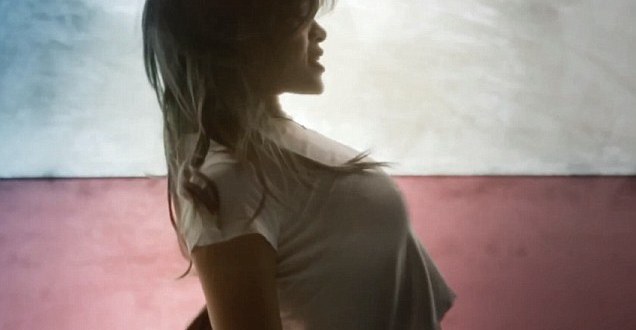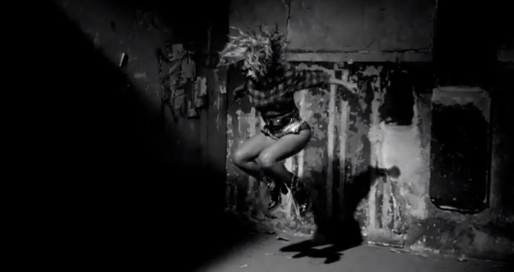Rihanna’s American Oxygen is subversive in the best way possible.
Another month passes by as we have yet another black body dead at the hands of the police in the United States (RIP Freddie Gray) Yet, as we shout black lives matter, we only seem to roar for black men. Black women and trans lives seem to only get recognition on Tumblr, our bodies not worthy of more than a couple thousand to march (RIP Rekia, Mya, Yvette, Tanisha).
And then I’m asked what I think of Rihanna’s ‘American Oxygen’. At first listen and viewing I am dismissive, mostly because I’m not really listening, nor getting it. But Rihanna, a Black Caribbean American immigrant singing about oxygen in the United States, matters. This song is a visual and harmonic exploration of American imperialism that sets chills down my spine each time I find the melody in my head or catch a glimpse of the video on T.V.
First: “Breathe in, breathe out, American oxygen.” Only like Eric Garner, who died in a chokehold this past July stammered, we can’t.
Second: Rihanna croons of the possibilities of a young he and she that ‘can be anything at all’ yet she sings a blue question embedded in doubt, rather than truism. And as the video flips through major moments of U.S. history from the landing on the moon, to 9/11, Hurricane Katrina and lynchings in the early twentieth century it is clear that the question of American oxygen manifests in an imbalance of lack and excess.
Third: ‘We sweat for a nickel and dime and build into an empire.’ Yet juxtaposed with images of Ferguson, we can see that the empire’s pervasiveness manifests into oxygen that is simultaneously ubiquitous, yet suffocating. If a young girl and a young boy can be anything- because of the air we all breathe- the question becomes- not if the oxygen is present, but rather how certain bodies- those of Mexicans dying at the hands of the army trying to cross the border, or Katrina survivors left to die, can choke in its excess.
Fourth: Breath also conjures images of journey- that is its constriction in the journey. While we see imagery of immigrants trying to cross the border- we don’t see imagery of the journey itself. But if we take a step further we can picture it- bodies crammed together in trucks, with air sparse. Then I think of a different journey into the Americas- with slaves piled onto ships, crowded onto upper and lower decks, again with little room for a calm breath. And then to finally arrive at the destination, with more space to breath air, which is nothing less than contaminated, if not poisonous.
Fifth: ‘I say, can’t see- just close your eyes and breathe’- where the surreal promise of a better land is something that if not experienced through sight (read color blind- post-injustice) can still be understood through the exhalation of polluted air (or the reality of systemic inequality).
Sixth: In tandem with Michael Jackson’s “They Don’t Really Care About Us” and Public Enemy’s “Fight the Power”, “American Oxygen” has a message- one echoed in the recent albums of Kendrick Lamar and D’Angelo and even Erykah Badu’s 2010 ‘New Amerykah Pt.1’.
Seventh: Perhaps its dismissal comes because of Rihanna’s taut nipples (read titillation), or the fact that she’s an American immigrant seemingly singing about how great America is. But that’s what makes it all the more interesting. Rihanna doesn’t crack a smile once throughout the song, and despite the dismissal of her faux profound poses– she sings of a narrative she and we know all too well- you can be anything you want here, but only with sacrifice.
Eighth: Barack Obama calls those protesting in Baltimore criminals and thugs. And then the video’s opening (footage of Obama sworn in as President) makes sense. Obama was/is meant to symbolize a new America- a post racial, post inequality space, where anyone can be anything. But what we have 7 years later is something different- something new(ish), which refutes the notion that America as an institution has changed simply because a non white body is in the office of the President. It will take more than a black President to fix America’s system of inequality and racism. This truism was evident from America’s beginning days of the empire, and becomes all the more clear now, as millions of immigrants trying to get to America, and those already sworn into the land of the free, literally choke to death on the promise of American oxygen.




